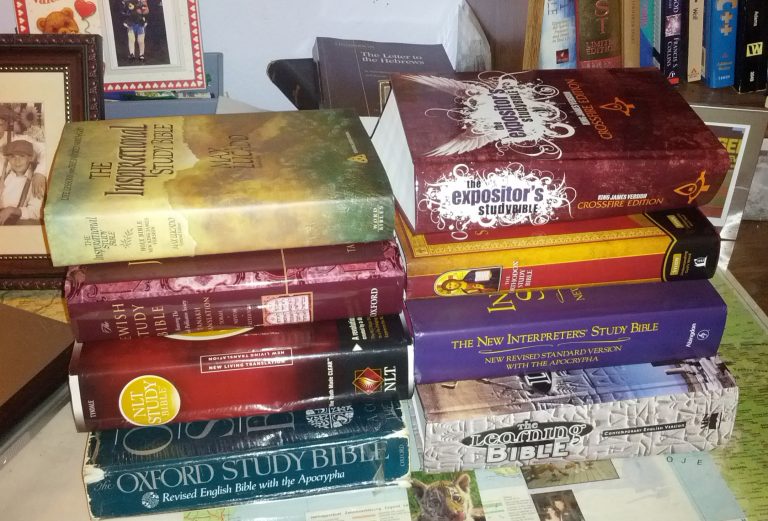Goals in Bible Study
Very frequently in life, once you find out the right question to ask, the answer becomes obvious. You can waste a great deal of your time trying to find the answer to the wrong question. In Bible study, this is even more true. The question(s) you take into your study will frequently determine the answers you take back out. You can even force the text to answer questions it was never intended to answer, and if you do so, you’ll find that you are getting unreliable answers.
I maintain in my study guide on Revelation, that one of our problems in understanding Revelation is the questions we bring to the problem. We go in expecting it to tell us the precise sequence, geography, and dating of events, and we come out with many different answers. I suggest that if God desired to inform us, through John’s vision, about the precise sequence of events in the end times, then he failed miserably. Since I don’t think God fails to accomplish what he intends, I tend to start looking for a different intention.
There is one key question, however, that I’d like to address right now is for whom you study the Bible. Are you looking for the things that talk to the other guy, or are you looking for things that address you in your need and your condition?
My wife does a regular devotional list (Jody’s Devotionals) by e-mail, and she has repeatedly told me that she never sends out a message that convicts anyone else, except that it has convicted her first. I know that she has never had to hold back a message because it failed to convict her–she writes about the things that do convict her. She’s reading the Bible looking for what God wants to tell her, not for what God wants to tell her neighbor.
I’ve recently been writing a number of devotions for her–it’s a season for her and for me as well–and I’ve found much the same thing. I’ve always taught that one should read the Bible first for what God wants to say to you, and then take that and teach it to others. But in writing these devotionals, I’ve experienced that much more personally. I was writing today about Jesus, as recorded in Mark 6:45-52, looking like he was wanting to walk by the disciples on the sea. There are the disciples, struggling along in their boat, putting out their best effort, and Jesus is effortlessly walking by. I can see myself so clearly in that picture. The arrows of conviction from that one came to me first. (It will be a few days before that devotional goes out to the list.)
Now teachers and pastors often have to study the Bible looking for answers for classes or congregations. I’m not saying that’s a bad thing. But I suspect that the best attitude in approaching the Bible, assuming that one wants to hear what God has to say, is an attitude of submission that prepares to hear lessons for oneself. It’s so easy for judgment and arrogance to get into the picture–and I’m talking to myself here as well!–when one tries to look for the lessons that best apply to other people. “Oh boy,” you say. “Fred should really read this. But I bet he won’t hear it. He’s too stubborn.”
But then there’s the comment in Mark 6:52, that the disciples hadn’t gotten the point of the bread, with which Jesus had just fed 5,000 people, because their hearts were hardened. I’m wondering if the disciples even realized that there was a lesson there that they needed to get! Did they just think, “We already know what Jesus can do. Let’s get this food distributed and the leftovers picked up, and get on with business.” I know I have read the scriptures looking for an answer to someone else’s question, while missing numerous messages God wanted me to apply in my own life.
There are certainly many purposes to Bible study, but I think hearing the conviction of God’s Holy Spirit for your own life needs to be primary.
